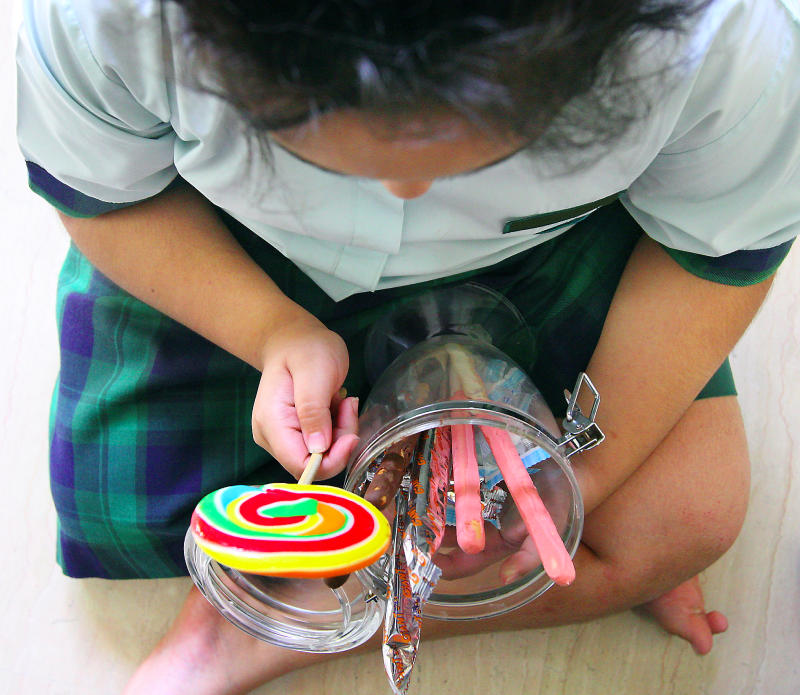Adults are getting fitter, but children are increasingly overweight: MOH figures
Sign up now: Get ST's newsletters delivered to your inbox

13 per cent of children in mainstream schools were overweight in 2017, a slight rise from the 11 per cent in 2011.
PHOTO: ST FILE
SINGAPORE - Adults in Singapore have become fitter, but children here are getting fatter.
This is according to the latest figures from the Ministry of Health (MOH), which showed that last year, 36.2 per cent of Singaporeans aged 18 to 69 are overweight. This is a drop from 2010, when a national survey found 40.1 per cent of adults here overweight.
In contrast, 13 per cent of children in mainstream schools were overweight in 2017, a slight rise from the 11 per cent in 2011, said Senior Minister of State for Health Amy Khor on Wednesday (March 14) in a speech that highlighted the importance of inculcating healthy habits in the young.
"An unhealthy body weight in childhood is likely to persist and progress later in life, leading to an increased risk of conditions such as diabetes, heart disease and stroke," said Dr Khor, who was speaking at an event at Giant Tampines.
The improved weight status for adults runs counter to the trend of higher calorie intake here.
Six in 10 Singaporeans ate more calories daily than what is recommended, according to the Health Promotion Board last year. An adult man requires about 2,200 calories a day, while adult women need about 1,800 calories.
In Singapore, a person with a body mass index of 25 and above is deemed to be overweight. Anything above 30 is considered obese.
On a brighter note, people seem to be more health conscious when it comes to grocery shopping. Supermarkets have reported better sales for products marked with the Healthier Choice Symbol. Fairprice, for instance, said sales of such items have risen by about 40 per cent from 2013 to 2016.
Meanwhile, Dairy Farm chief executive Mark Herbert told The Straits Times that 40 per cent of Giant's sales come from fresh produce.
Ms Jaclyn Reutens, a clinical and sports dietitian, has observed that her clients are becoming more health conscious, with more people choosing healthier food options and participating in runs or using step-trackers.
Dr Benedict Tan, chairman of the Exercise is Medicine Singapore, a programme which aims to make physical activity and exercise a standard part of preventing and treating diseases, said the latest weight figures indicate that national initiatives to promote healthier lifestyles are working.
An example is the Healthy Meals in Schools Programme, which trains canteen vendors to prepare healthier meals for students. The government also set up the NurtureSG task force in 2016, which makes recommendations on improving the health of youths, and recently ensured all pre-schools only serve drinks with the Healthier Choice Symbol.
On Wednesday, Dr Khor also officiated the launch of Giant's Goodness Gang campaign, which aims to get children to eat more healthily via fun activities and collectible toys.
Dr Tan said such initiatives had helped to instil good exercise and dietary habits among the public, as well as beefed up their knowledge and awareness on the need and ways to stay healthy. Although the picture seems slightly less rosy for the younger generation, Dr Tan noted that obesity is a growing trend worldwide.
"Because there's such a major surge (in obesity rates) across the world, if we hold steady, it's already an achievement. But in absolute terms, of course we can do better," he said.
For example, children could be made to take up at least one sport co-curricular activity in school, suggested Dr Tan, who is a former national sailor.
The best strategy to combat the trend, said Dr Khor, is through prevention. "Studies have shown that the dietary habits of children are formed well before the age of five. Thus, the development of healthy habits must begin from young, and sustained through to adulthood."
"The Government can only do so much and everyone must play their part," she said.
Correction note: An earlier online version of this report said that the proportion of overweight Singaporeans aged 18 to 69 was 36.7 per cent, when the actual figure is 36.2 per cent. We are sorry for the error.
Correction note: An earlier online version of this report said that the proportion of overweight Singaporeans aged 18 to 69 was 36.7 per cent, when the actual figure is 36.2 per cent. We are sorry for the error.


